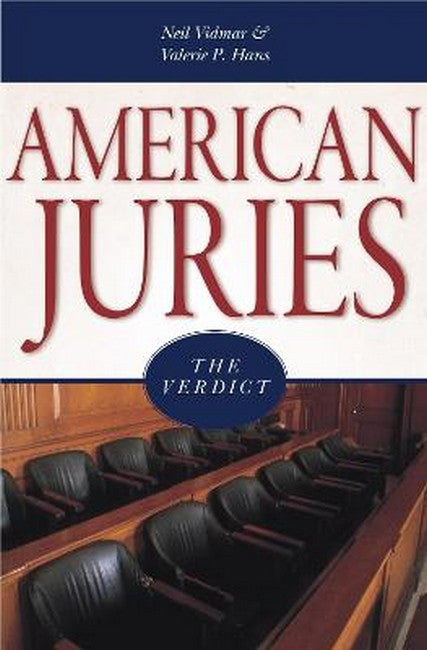Neil Vidmar, PhD, (Durham, NC), is both the Russell M. Robinson II Professor of Law at Duke University School of Law and a professor of psychology at Duke University. He has published over 100 research articles and is the author, coauthor, or editor of four books including Hans and Vidmar's widely acclaimed Judging the Jury, Medical Malpractice and the American Jury, and World Jury Systems. Valerie P. Hans, PhD (Ithaca, NY), is Professor of Law at Cornell University. She has published more than ninety research papers and articles and is the author, coauthor or editor of five books including Business on Trial; Judging the Jury and The Jury System. She also serves on the editorial boards of major professional journals in the field of law and social science.
Request Academic Copy
Please copy the ISBN for submitting review copy form
Description
Introduction; The English Origins of the Modem Jury: From Trial by Ordeal to the Decline of the "Little Parliament"; Criminal and Civil Juries in America from Colonial Times to the Present Day: Evolution, a Heroic Role, and Controversy; A Jury of Peers: Democratic Goals; Jury Selection: Juror Bias, Juror Challenges, and Trial Consultants; Problem Cases: Pretrial Publicity; The Tasks of the Jury: Evidence Evaluation and Jury Decision-Making Processes; Judging the Jury: Evaluating Jurors' Comprehension of Evidence and Law; Trials in a Scientific Age: Juries Judging Experts; Judging Criminal Responsibility: Erroneous Convictions, the CSI Effect, and the Victim's Role; Deciding Insanity: Mad or Bad?; Jury Nullification: The War with the Law; Death Is Different: Juries and Capital Punishment; Civil Liability: Plaintiff vs Defendant in the Eyes of the Jury; Deciding Compensatory Damages: Million-Dollar Questions; Punitive Damages: Coffee Spills and Marlboro Cigarettes; Juries and Medical Malpractice: Antidoctor, Incompetent, and Irresponsible?; Concluding: The Verdict on Juries; Index.
"In this highly readable and lively work, which should be readily accessible to students and non-lawyers as well as to those more directly involved in the legal system, the authors conclude that 'our verdict is strongly in favor of the American jury.'" -- Political Science Quarterly, Winter 2008-09

